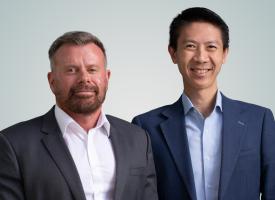The benefits of asking non-standard questions in an interview
A good interview will help practices make an informed hiring decision as it gives you the ability to objectively evaluate and compare candidates. As part of the interview process, the questions being asked are a useful tool to get insights into an employees work values, habits and motivators.

It can also be helpful for the following reasons:
- Assessing competencies: The interview process enables practices to assess the candidates technical and relevant skills, knowledge, experience and behaviours
- Determine cultural fit: Interviews provide an opportunity to assess the candidates alignment with the practices core values and missions, ultimately allowing you to get an idea of how well they will fit into the team and the practices overall strategy and objectives.
- Validating information: this process gives interviewers the opportunity to verify the information provided in a resume, including their working experiences and qualifications.
- Legalities associated with employment: the interview process is a good way to ensure practices are complaint with legal requirements such as discrimination in the workplace. The hiring process should be fair and unbiased and give all eligible candidates an opportunity at the position.
- Reduce employee turnover: a solid interview process can, in the long run, reduce employee turnover which can be costly for employers in terms of loss of productivity, recruitment costs and training expenses.
Like all processes, there can be upsides and downsides to interviews, particularly when it comes to the questions you are asking. I’m sure for most of us we have all experienced hiring an employee who seemed great in their interview, ticked all the right boxes and said all the right things, only to have them start in their role and realise they aren’t the right fit after all. Something the HR industry refers to as ‘Hires remorse’.
One way to make the interview process more valuable can be changing up the questions asked. Included in this article are some examples of different interview questions you may like to adapt in your interview process to get the best from your candidates as well as some follow up questions.
Question 1: What is the toughest feedback you’ve ever received?
Similar to asking employees to give an example of a challenging situation they have had to overcome, which they may already have a pre-planned answer for, this question can help practices get a sense of a candidate’s humility and emotional intelligence. It can also give you an insight into how they handle constructive criticism and if they have the ability to reflect on their actions, both positive and negative.
Follow up questions:
- What changes did you make after hearing this feedback?
- How do you usually like to receive feedback?
- How do you think you responded to this feedback?
- How have you proactively sought out feedback in the past?
These follow up questions help expand on initial insights on how candidates like to be managed and how you can get the best out of your employees.
Question 2: What is the biggest win you have had in your career?
Unlike asking a candidate “what are your strengths” this question gives candidates the ability to showcase what they are good at and what inspires them at work. Essentially providing practices with an example of their strengths in action. It can also provide a sense of role alignment and whether they will get the chance to do more work, like they have given you an example on, in your practice.
Follow up questions:
- What were you most proud of with this win?
- What did you do to achieve this goal?
- How do you celebrate achievements at work?
Question 3: What team behaviours energise you when working with others?
A question like this allows employers to get a sense of the types of work, behaviours, ways of working and processes candidates work well with. For example, like being informed of every detail? Do they value autonomy? Do they need clear and consistent direction? Or do they even like working in a team?
It is also a great way to get an idea about their self-awareness and if they know what their optimal working environment is and what will bring out the best in them. This helps to determine their alignment with the practices management and leadership structure.
Follow up questions:
- What team culture helps you do your best work?
- What environment do you prefer to work in?
Question 4: Tell me a little bit about the best and worst type of employers you have worked for.
This type of question is a great way to learn about the leadership styles candidates’ value, and will also help to uncover the expectations they have of managers and employers in those leadership style positions. For instance, if they mention that their worst employer was someone who micromanaged them, you would be able to determine that they work better with a more hands-off type manager.
This question will also help you understand what makes them feel disempowered or disengaged with their work. For example, when they receive too little direction, if they have a boss who wants to try and be their friend or someone who directs them rather than coaching them. As there is no one size fits all management approach, this question will be important to see if they will be the best fit with your practice management.
Follow up questions:
- How have you built a great working relationship with your manager?
- In the past, have you given honest feedback to your manager? (why/why not?)
- What do you expect from your leaders?
- How do you prefer to be managed?
Question 5: Why us and why now?
A question like this gives the candidate an opportunity to leave a lasting impression. It will give practices the chance to determine if the candidate has just applied for the job, for the sake of having a job, or if they have a genuine interest in your business or the health industry.
Incorporating or changing a few standard questions in your recruitment process offers several benefits:
• helps gauge a candidate’s critical thinking and problem-solving abilities
• assess a candidate’s adaptability and creativity in handling unique challenges
• gives a feel for the candidate’s personality, communication, style and cultural fit within the practice.
By deviating from a traditional interview question, employers can gain a deeper understanding of a candidate’s potential and suitability for the role, ultimately leading to more informed hiring decisions and potentially identifying exceptional candidates who may be overlooked through a conventional recruitment approach.
|
Workplace Relations Support can provide members with general advice on the interview process and recommend possible recruiters you may like to use throughout the recruitment process. You can contact us via phone (07) 3872 2222 and email support workplacerelations@amaq.com.au. |
|
|
Workplace Relations Toolkit |
|
|
Workplace Relations Consultancy Workplace Relations Consultancy can provide tailored advice and assistance in the recruitment process specific to your practice. |



